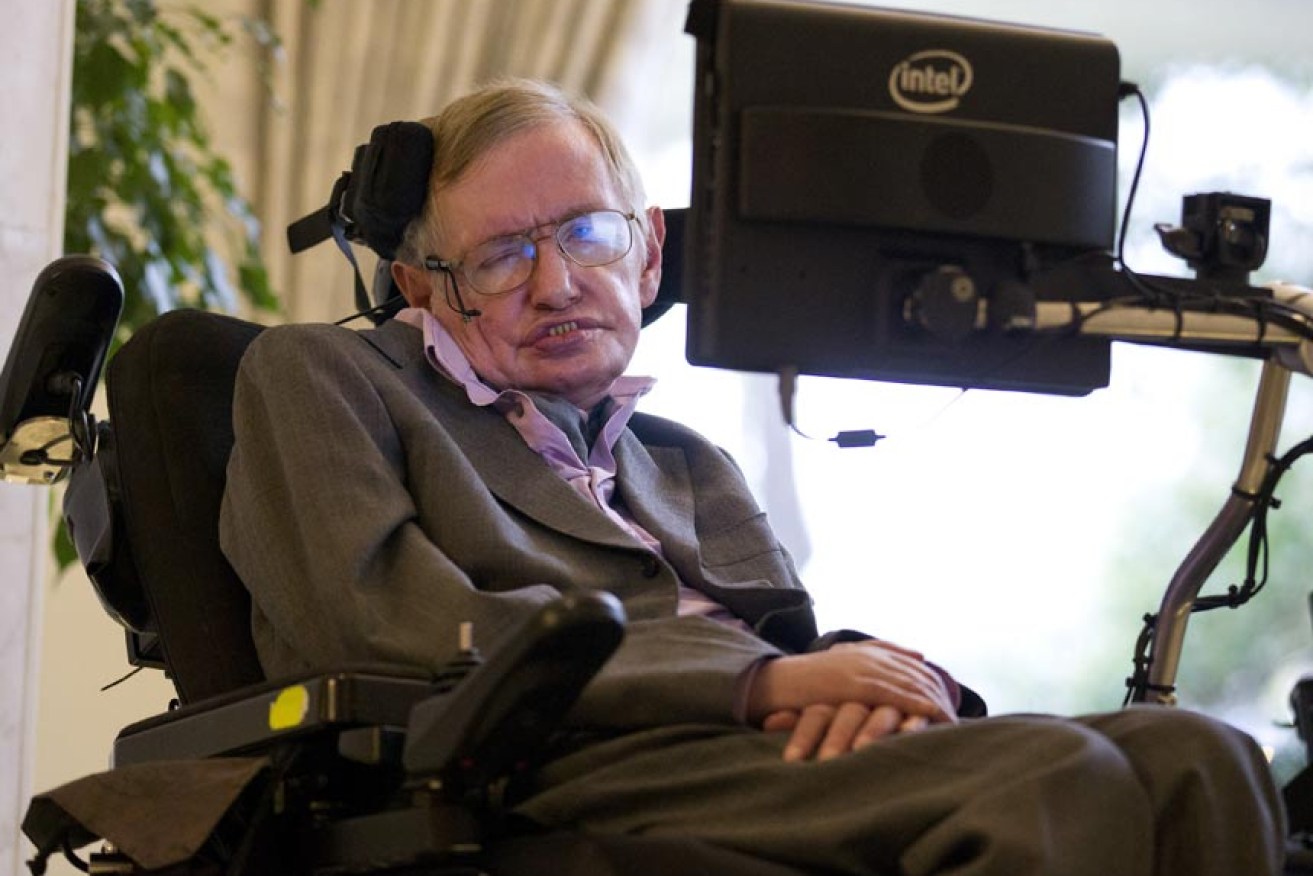‘He leaves an intellectual vacuum’: Physicist Stephen Hawking dies


Stephen Hawking's ashes will be interred at Westminster Abbey after a private funeral at Cambridge University. Photo: Getty
Theoretical physicist Professor Stephen Hawking who died Wednesday aged 76 is being remembered as a man who revolutionised the way the public viewed scientific thought.
Widely considered one of the world’s leading scientists, his passing came 55 years after doctors told him he had two years to live after being diagnosed with motor neurone disease.
Professor Hawking’s children, Lucy, Robert and Tim said in a statement: “We are deeply saddened that our beloved father passed away today (Wednesday AEDT).
“He was a great scientist and an extraordinary man whose work and legacy will live on for many years. His courage and persistence with his brilliance and humour inspired people across the world.
“He once said, ‘It would not be much of a universe if it wasn’t home to the people you love.’ We will miss him forever.”
American astrophysicist and author Neil deGrasse Tyson was one of the first to pay tribute on Twitter saying Professor Hawking’s passing had left “an intellectual vacuum”.
His passing has left an intellectual vacuum in his wake. But it's not empty. Think of it as a kind of vacuum energy permeating the fabric of spacetime that defies measure. Stephen Hawking, RIP 1942-2018. pic.twitter.com/nAanMySqkt
— Neil deGrasse Tyson (@neiltyson) March 14, 2018
According to Professor Hawking’s website, he was the former Lucasian professor of mathematics at the University of Cambridge and author of A Brief History of Time, an international bestseller.
In 1963, he contracted motor neurone disease, yet he went on to Cambridge to become a brilliant researcher and professorial fellow at Gonville and Caius College.
From 1979 to 2009 he held the post of Lucasian professor at Cambridge, the chair held by Isaac Newton in 1663.
Professor Hawking had over a dozen honorary degrees and was awarded the CBE in 1982. He was a fellow of the Royal Society and a member of the US National Academy of Science.
Much of his work related to the basic laws which govern the universe.
In 1970, with Roger Penrose he showed that Einstein’s general theory of relativity implied space and time would have a beginning in the Big Bang and an end in black holes.
These results indicated that it was necessary to unify general relativity with quantum theory, the other great scientific development of the first half of the 20th century.
The work established that black holes should not be completely black, but rather should emit ‘Hawking’ radiation and eventually evaporate and disappear.
Remembering Stephen Hawking, a renowned physicist and ambassador of science. His theories unlocked a universe of possibilities that we & the world are exploring. May you keep flying like superman in microgravity, as you said to astronauts on @Space_Station in 2014 pic.twitter.com/FeR4fd2zZ5
— NASA (@NASA) March 14, 2018
The publication of A Brief History of Time in 1988 marked a watershed in scientific publication, making Hawking’s theories accessible to a wider audience.
It sold more than 10 million copies and has been translated into 40 languages.
It made him a celebrity and he spent the rest of his life travelling the world to address scientific conferences and seminars.
As a pop-culture icon Professor Hawking appeared as himself numerous times on animated series The Simpsons and Star Trek:The Next generation.
A biopic on his life and relationships The Theory of Everything was a critical hit, with British actor Eddie Redmayne winning the Oscar for best actor.
Fellow theoretical physicist Lawrence M Krauss said Professor Hawking had “taught us all something important” about humanity.
A star just went out in the cosmos. We have lost an amazing human being. Stephen Hawking fought and tamed the cosmos bravely for 76 years and taught us all something importantabout what it truly means to celebrate about being human. I will miss him.
— Lawrence M. Krauss (@LKrauss1) March 14, 2018
Born on January 8, 1942 (exactly 300 years after the death of Galileo) in Oxford, England, Professor Hawking had three children and three grandchildren.








